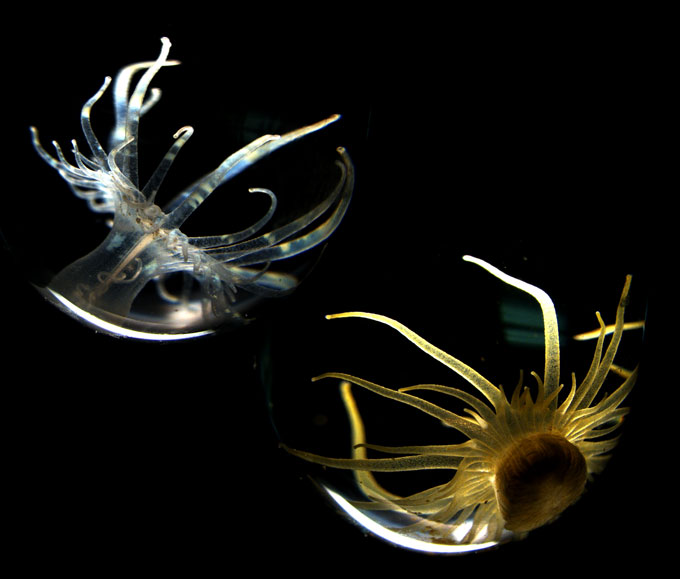One common chemical in sunscreen can have devastating effects on coral reefs. Now, scientists know why.
Sea anemones, which are closely related to corals, and mushroom coral can turn oxybenzone — a chemical that protects people against ultraviolet light — into a deadly toxin that’s activated by light. The good news is that algae living alongside the creatures can soak up the toxin and blunt its damage, researchers report in the May 6 Science.
But that also means that bleached coral reefs lacking algae may be more vulnerable to death. Heat-stressed corals and anemones can eject helpful algae that provide oxygen and remove waste products, which turns reefs white. Such bleaching is becoming more common as a result of climate change (SN: 4/7/20).
The findings hint that sunscreen pollution and climate change combined could be a greater threat to coral reefs and other marine habitats than either would be separately, says Craig Downs. He is a forensic ecotoxicologist with the nonprofit Haereticus Environmental Laboratory in Amherst, Va., and was not involved with the study.
Previous work suggested that oxybenzone can kill young corals or prevent adult corals from recovering after tissue damage. As a result, some places, including Hawaii and Thailand, have banned oxybenzone-containing sunscreens.
In the new study, environmental chemist Djordje Vuckovic of Stanford University and colleagues found that glass anemones (Exaiptasia pallida) exposed to oxybenzone and UV light add sugars to the chemical. While such sugary add-ons would typically help organisms detoxify chemicals and clear them from the body, the oxybenzone-sugar compound instead becomes a toxin that’s activated by light.
Anemones exposed to either simulated sunlight or oxybenzone alone survived the length of the experiment, or 21 days, the team showed. But all anemones exposed to fake sunlight while submersed in water containing the chemical died within 17 days.

The anemones’ algal friends absorbed much of the oxybenzone and the toxin that the animals were exposed to in the lab. Anemones lacking algae died days sooner than anemones with algae.
In similar experiments, algae living inside mushroom coral (Discosoma sp.) also soaked up the toxin, a sign that algal relationships are a safeguard against its harmful effects. The coral’s algae seem to be particularly protective: Over eight days, no mushroom corals died after being exposed to oxybenzone and simulated sunlight.
It’s still unclear what amount of oxybenzone might be toxic to coral reefs in the wild. Another lingering question, Downs says, is whether other sunscreen components that are similar in structure to oxybenzone might have the same effects. Pinning that down could help researchers make better, reef-safe sunscreens.



